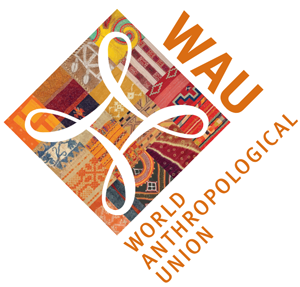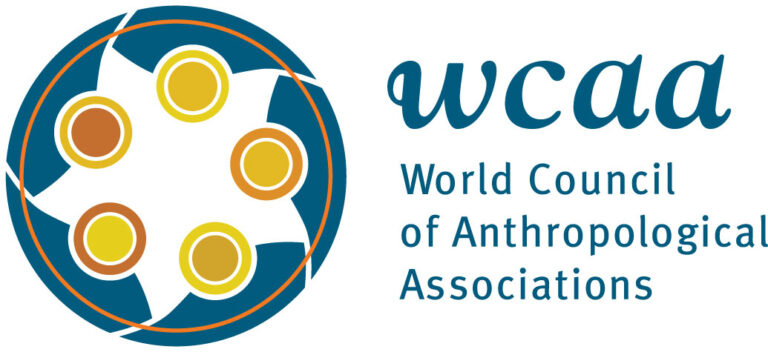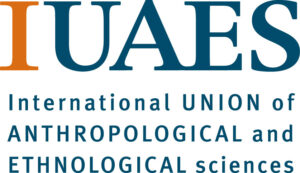Questions for Journal Editors for the Tenth Anniversary of Deja Lu
Jinsook Choi, editor of Korean Cultural Anthropology, journal of the Korean Anthropological Association
Nov 17 2021
Interviewed by Gordon Mathews
GM: Many Déjà Lu readers won’t know much about the world of Korean anthropology. Are most Korean anthropologists writing about Korea, or about other societies?
JC: Half of the papers that we publish are about other societies: Korean anthropologists study Japan, China, some Southeast Asian countries and, in some cases, Latin America, although the majority, I would say, are dealing with Japan and China. Even in papers on Korea, the topics are very diverse.
GM: Do you publish papers only in Korean? Or in English as well?
JC: We publish mostly in Korean, but also sometimes we do have international authors who we publish in English. Yes, if you wrote a paper on Japan in English, please send it to us! I’m dying to get more papers from international authors! Our next issue will have one English-language paper out of nine; one or two English-language papers in each issue would be fine.
GM: Your journal, Korean Cultural Anthropology, is linked to the Korean Anthropological Association. Do your authors have to be members of the Korean Anthropological Association?
JC: You don’t have to be a member, but if you’re not a member, there are fees you must pay to try to publish with us. But yes, anyone in the world can publish with us—you don’t have to be Korean. We have reviewers who can read and write reviews in English.
GM: How many anthropologists are in South Korea?
JC: I think about 200. Members who paid membership in the Korean Society for Cultural Anthropology are about 150.
GM: So the referee process must be difficult if you use Korean anthropologists.
JC: Yes, this is one of the challenges we face because we have to have three reviewers for each paper. For some topics, it’s really hard to find referees. There aren’t many linguistc anthropologists, for example. I myself am a linguistic anthropologist, and if I were to try to submit, then I pretty much know who’s going to be the referees!
GM: Does that make the refereeing process a problem, since people you know might not speak fully honestly?
JC: Well, Korean anthropologists can be very tough! One of the rumors about Korean Cultural Anthropology is that referees are strict. People say, “Oh no, I don’t want to submit there! I’d rather submit to some other journal!” Anthropologists have a more rigorous standard: “do you have good empirical data; did you properly connect that with theories?” It doesn’t mean that referees want to reject papers, but they do really try to have standards and give good feedback.
GM: Are your readers interested in an East Asian focus primarily?
JC: That’s primarily right, although we don’t limit to any areas or any topics. We have certain areas and topics because there are more anthropologists who do that. Among sub-disciplines, there are more economic anthropologists or political anthropologists among cultural anthropologists in Korea, and there are not many linguistic anthropologists. In area studies there more Korean anthropologists studying China and Japan than, say, Mexico or Guatemala. I myself got my PhD doing linguistic anthropology in Guatemala, studying minority groups; there aren’t many people like that, but then, if you have written about Japan or China, then we can easily find reviewers. Of course, in some cases, we don’t have to have a reviewer who specializes in the same geographic area, if they can evaluate the theories and arguments in a paper.
GM: I would imagine that with only 150 members in your society, it must sometimes be tough to find submissions.
JC: Right, it is hard. Sometimes I actually have to extend the deadline for an issue for a week. We have three issues per year, with deadlines of November 30, March 30, and July 30. Sometimes you even have to say, “Will you please submit to my journal?” I have to do some salesmanship! I go to conferences and say, “Oh, this is a great paper. Are you going to submit it to our journal?”
GM: Is the formal publisher of your journal a commercial press in Korea? Who publishes it actually?
JC: We have a publishing company that does only just minor editing and final work. We pay them from the Korean Anthropological Association membership fees, We have money for that. But all the other work we editors do, for free. Yes, it does take a lot of time to do this—I hope people notice that! (laughs.) It’s academic service that you cannot say no to. To be editor, you have to be at a certain stage of your career, and you have to know people so that you can find authors and reviewers; there are not many people who can do this. When they asked me to do it, I couldn’t run away!
GM: Is Korean Cultural Anthropology the only Korean-language anthropological journal?
JC: No, there is one more, a journal of cross-cultural studies published by Seoul National University. We’re kind of competing with them! There are two anthropology journals that publish papers in Korean.
GM: Do most Korean anthropologists write in Korean or do they write in English?
JC: The younger generation, those who got their PhD in the last 10 years may write in English. The Korean academic standard has changed. Now you’re highly encouraged to publish papers in English in international journals. Now they even care about citation indexes. So they do publish in English, but of course they can publish for Korean Cultural Anthropology as well.
GM: So would a young scholar get more status from publishing in English in a mid-level American or British journal than in a journal in Korean?
JC: Right, I think that’s what’s happening. That’s another challenge as well for us: the.universities have evaluation criteria and they’re all going for international publications. They really care about the internationalization of institutions; one of the things they check from faculty members is “do you have international publications?”
GM: That’s a real problem for a Korean-language journal.
JC: Yes, exactly. In the recent past, Korean-language publications were most important but not now. Yes, this is because of citation indexes. Honestly speaking, I think international publication is good; I don’t think that we should just forget about international publication. But I also think that Korean-language journals should be valued as much as international journals. Because institutionally, international publications are highly valued, people tend to shift toward international publications. But Korean-language journals are not any less difficult to publish in! Korean language journals are still deemed important, although it depends on different institutions in our different universities in their criteria.
GM: Why are there no journals published in Asia in the Social Science Citation Index?
JC: Good question! I think there are some Social Science Citation Index or Arts & Humanities Citation Index journals in Asia—a few but not many, I think that there is an A&HCI journal in Singapore, and one in Korea. People want to publish in famous journals, because then their citations go up. I don’t have a very strong view of this, but I do think that we did lose a chance to build and develop our own identity as Korean anthropologists practicing Korean anthropology. But then when the world is changing and everything is globalized, scholarship has to so this as well: we kind of have to adapt to the new environment. Yes, we lost a chance, but at the same time, we cannot deny what’s going on in the world. Korean pop culture has become internationally known due to globalization, and I think scholarship is the same –if we study something, it can be in Korean, but it should also be distributed in English as well. Recently, scholars in communication studies and cultural studies are doing Korean studies and I think that has become more popular than a typical traditional Korean anthropological topic; more people are interested in Korean cultural topics today. But Korean Cultural Anthropology has its traditions. Recently I was trying to have different genres for Korean Cultural Anthropology, not just articles and reviews, but forums and debates. But it was hard to get writers. I was told, “there are other journals that do that. Why should we do that for Korean Cultural Anthropology?” A lot of members want to keep our journal the way it is.
GM: How much pressure or communication or directions do you get from the Korean Anthropological Association?
JC: Not much. The journal is relatively independent, although the executives of the Korean Anthropological Association might say, “Oh, I think you might want to have this…you might want to have more book reviews…” They can suggest, but no one can pressure me on certain issues!
GM: Tell me more about the refereeing process.
JC: For Korean Cultural Anthropology we don’t have desk rejection. Everything we receive goes out to referees. To be honest, I think we should have desk rejection. Other international journals all have desk rejection; but I don’t have that power! We have three reviewers per paper, and that’s a lot too—sometimes if a piece isn’t good enough, you shouldn’t have to send it out and waste referees’ time. I think the reason that we don’t do that is because with desk rejection the editor will get all the blame for rejection; some authors can be very aggressive and this way the editor can say, “oh no it’s not me, it’s the referees who said it’s not acceptable.” There are eight members of our Editorial Board. They help me to get reviewers; sometimes they also publish with us as well. Yes, it does happen that sometimes referees can be hard to find. I have an administrative assistant part-time who’s the one who sends out all the emails and receives replies and the most of the people we ask to referee say yes within one or two days. In some cases I use my network to find referees: “please help us!…”
JC: For some issues, we have a lot of submissions—20 or 25—and for others a smaller number, like only 10. Generally our acceptance rate is 60-70% of the papers we receive. Yes, we publish papers in English too, so please submit papers! It’s my philosophy that we should try to publish most papers we receive. Authors may need to revise and resubmit but our cycle is not so long. Yes, we try to help authors rewrite—we help a lot, as do reviewers. Authors simply need to explain to us what they can do and what they cannot do, and then their paper is pretty much acceptable. If the paper is acceptable, then we can accept a paper we have received after just two months. But you will hear from us within a month.
GM: If you had to sum up what the biggest problems that you face as journal editor are what would you say?
JC: The biggest problem is that it’s hard to find authors and reviewers. More than anything, we want to keep the quality of papers; we don’t want to publish whatever, because it will lower the standard of our journal. Another challenge is that, except for young scholars and recent PhDs, it may be hard for anthropologists to have really rich empirical data—while you’re teaching and doing administrative work, how can you do fieldwork? I think we have to be more open-minded about anthropological work apart from such rich empirical data. With on-line data now, we need to be open to broader and more diverse topics. We need to rethink what ethnographic data means.
GM: I don’t know much about anthropology in Korea. Tell me about it! Are there Korean anthropologists who say, “we want to have a Korean anthropology apart from English-language anthropology!” Is writing in Korean different than writing in English?
JC: Of course in writing in Korean you have a different way of expressing than in writing in English, but I don’t think that the underlying logic of arguments is that different. Some Korean anthropologists do want a distinct Korean anthropology, focusing on Korean history and folklore, seeking Korean data and theories. But I don’t think that’s a majority voice. In Korean Cultural Anthropology, we respect diversity: make your argument as you see fit, and we will respect that approach. In Korea, we don’t generally have a resentment of Anglo-American hegemony. Instead, anthropologists may find that Anglo-American theory doesn’t work for their own particular Korean or East Asian data. The more diverse your theorizing, the better. We don’t say that you have to be nationalistic, or you have to be global; there’s not a conflict between them.
GM: Do Korean anthropologists get upset about the pressure to publish internationally, and more and more in English?
JC: There are people who are upset, but I think that’s a generational issue. Younger-generation scholars accept that as a norm. I think that about half of Korean cultural anthropologists got their PhDs in the US or European countries; they are familiar with foreign languages such as English and with Western anthropological theories and may seek to introduce those theories to Korean scholarship.
GM: Do these authors write different kinds of papers for you in Korean then they would for, say, an American journal?
JC: I don’t think there’s that much difference, although I guess it depends upon the journal. If you are writing about a non-Korean area, for Korean readers you may need to provide some background knowledge, because Korean readers may not be familiar with the topic—for example, when I published about Guatemala in Korean, I did that so that my readers could fully understand what I was discussing.
GM: Do you ever get authors who say, “I want to use only Korean theory in my writing”?
JC: There have been authors like that. I think that’s fine. I think when they use only Korean theories, it’s often coming from folklore studies or ethnohistorical studies, more empirical-data-based than other studies, with less theoretical discussion. That is very valuable as well.
GM: Now, if I were to advertise for Korean Cultural Anthropology, I would say, based on what you’ve told me today, “Anybody writing about Korean issues but for that matter any issues in the world should consider publishing with you.” Is that right?
JC: Yes. We have a great review process and very fast reviews and we are open to diverse topics and diverse theories. Please consider our journal for your next publication. We consider submissions not just in Korean but in English; we have good referees who can referee in English.
GM: Yes, the big lesson that I am getting from all my interviews is this: “Don’t just submit to large, famous journals. Submit to smaller journals. They want your work, and will deal with it in a more personal and probably a more rapid way than a large journal might.”
JC: I think the same thing is true for conferences as well—smaller is better!



